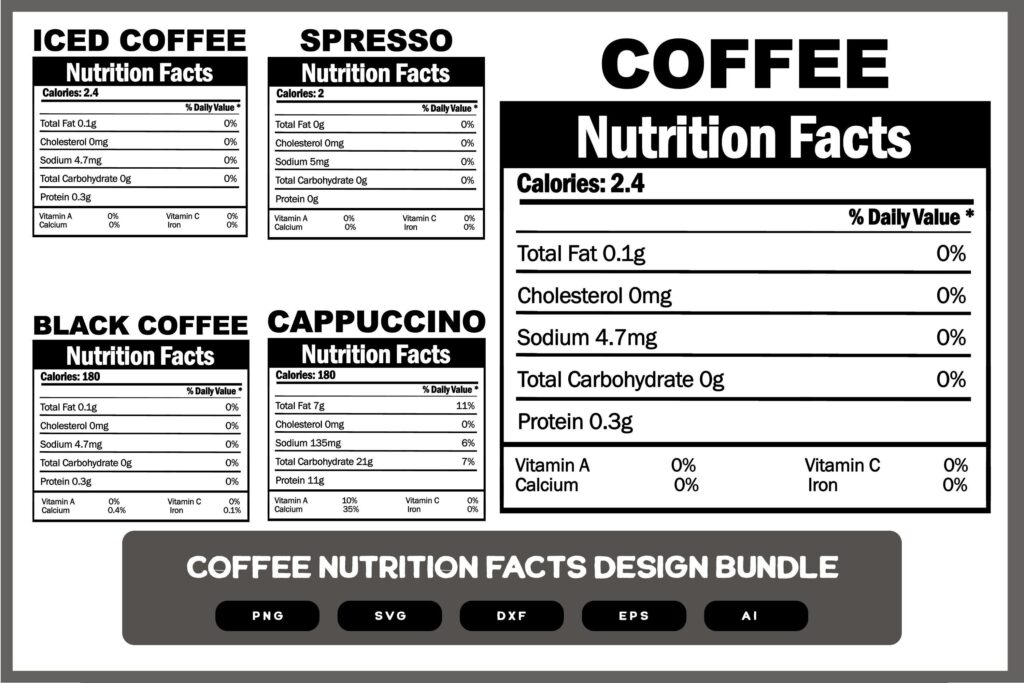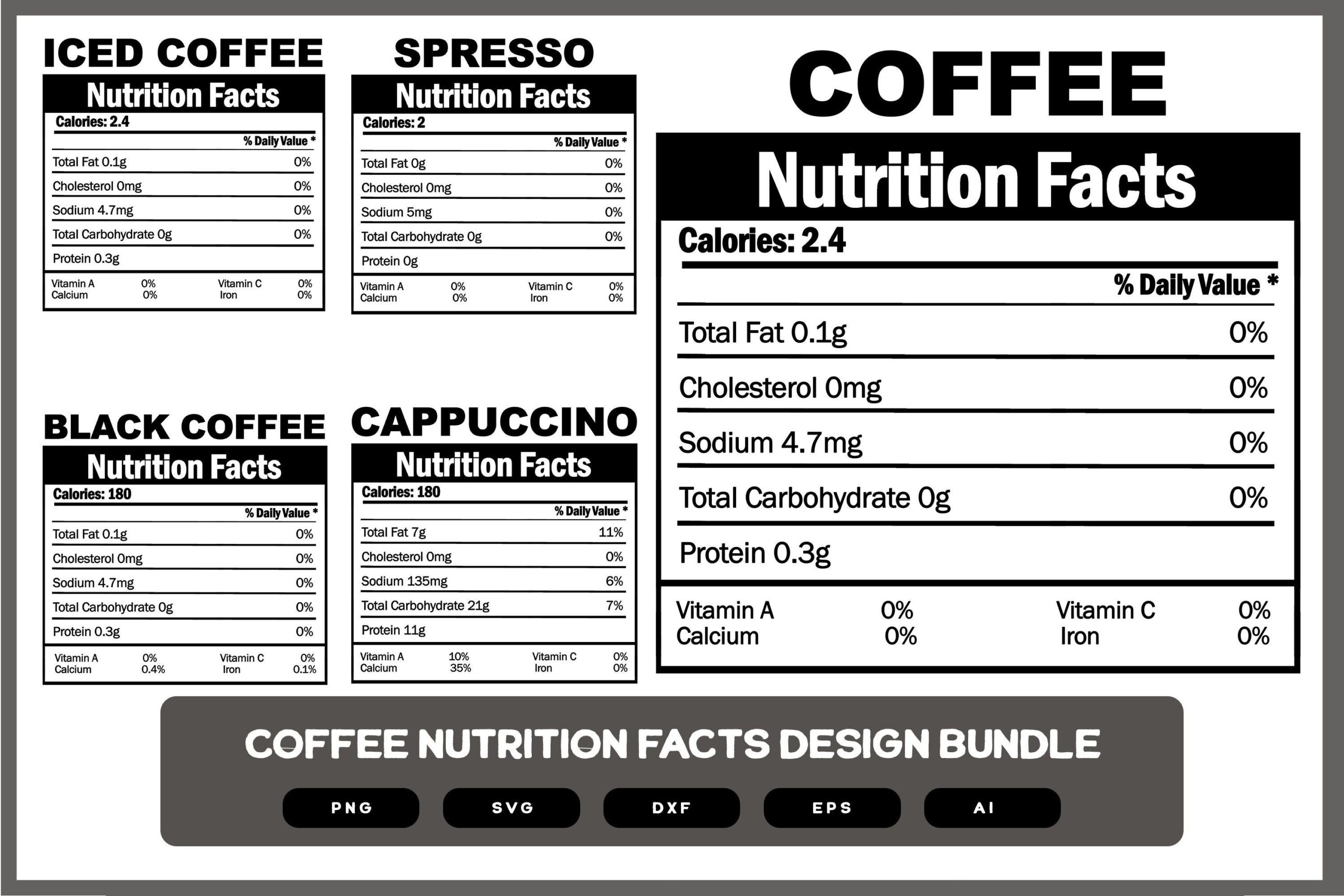
Donut Shop Coffee Pods: A Nutritional Deep Dive
The aroma of freshly brewed coffee, the sweet promise of a donut – it’s a classic pairing, a comforting ritual for many. But in today’s fast-paced world, convenience reigns supreme. This is where the allure of donut shop coffee pods comes in. They offer the taste of your favorite cafe, readily available at home or in the office. But what about the less glamorous side of this convenience? What are the nutrition facts behind these little pods, and how can you brew the perfect cup?
This article will delve into the world of donut shop coffee pods, examining their nutritional profiles, exploring the factors that influence taste and quality, and offering tips for brewing a satisfying cup. We’ll dissect the nutrition facts, compare different brands, and provide insights to help you make informed choices about your coffee consumption. Understanding the nutritional content of your donut shop coffee pods is crucial for maintaining a balanced diet and making healthy lifestyle choices.
Understanding the Basics: What’s in a Donut Shop Coffee Pod?
At their core, donut shop coffee pods are designed to deliver a single serving of brewed coffee. The primary ingredient is, unsurprisingly, coffee. But the composition often extends beyond the roasted and ground coffee beans. Here’s a typical breakdown:
- Coffee: The foundation of any coffee pod. The type of bean (Arabica, Robusta), the roast level (light, medium, dark), and the origin of the beans all contribute to the final flavor profile. Many donut shop coffee pods will specify the origin and roast on the packaging.
- Filter Material: Pods are typically encased in a filter, often made of paper or a similar material, to allow water to pass through while retaining the coffee grounds.
- Packaging: The packaging is designed to seal in freshness and protect the coffee from oxygen and moisture. This can be made from various materials, including plastic and aluminum. The packaging’s impact on the environment is becoming an increasingly important consideration for consumers.
- Possible Additives: Some donut shop coffee pods may contain additives, such as flavoring agents or preservatives. These are often used to enhance the taste or extend the shelf life of the product. Always check the ingredient list to be aware of what you’re consuming.
Deciphering the Nutrition Facts Label: A Closer Look
The nutrition facts label on a package of donut shop coffee pods provides a wealth of information. Let’s break down what you should be looking for:
- Calories: Black coffee, in its purest form, is very low in calories. However, additions like sugar, milk, and cream can significantly increase the caloric content. The nutrition facts will detail the calories per serving, and this number can vary depending on the size of the pod and the specific coffee blend.
- Carbohydrates: Coffee naturally contains a small amount of carbohydrates. Again, any added sugar or flavorings will increase the carbohydrate count.
- Fat: Coffee beans themselves contain a small amount of fat. The fat content in a single serving is usually negligible unless cream or other fatty additions are included.
- Protein: Coffee contains a trace amount of protein.
- Sodium: Coffee generally has a very low sodium content.
- Caffeine: The caffeine content is a crucial factor for many coffee drinkers. It varies depending on the coffee bean type, roast level, and brewing method. The nutrition facts label will provide information on the caffeine content, often expressed in milligrams (mg) per serving. The caffeine in donut shop coffee pods can range from moderate to high, so it’s important to be mindful of your daily intake.
It’s important to remember that the nutrition facts provided on the label are typically for a single, brewed serving of coffee. Any additions, such as milk, sugar, or flavored syrups, will significantly alter the nutritional profile. Be sure to factor in these additions when calculating your overall caloric and nutrient intake.
Comparing Donut Shop Coffee Pods: Brand-by-Brand Analysis
The market for donut shop coffee pods is competitive, with various brands vying for consumer attention. Comparing different brands involves examining not only the taste and flavor profile but also the nutritional information. Here’s a general comparison to consider:
- Caffeine Content: Some brands may offer pods with higher caffeine content for an extra energy boost. Always check the label for the caffeine level per serving.
- Roast Levels: Different brands offer a range of roast levels, from light to dark. The roast level influences the flavor profile and, to some extent, the caffeine content. Darker roasts tend to have a bolder flavor but may have slightly less caffeine than lighter roasts.
- Flavor Profiles: Some brands focus on classic coffee flavors, while others offer flavored options such as vanilla, hazelnut, or caramel. These flavored pods often contain added sugars and flavorings, which can impact the nutritional content.
- Organic and Fair Trade Options: Some brands offer organic and fair trade certified coffee pods, appealing to consumers who prioritize sustainability and ethical sourcing.
- Additives: Carefully review the ingredient list for any additives or artificial flavorings. Opting for pods with fewer additives can contribute to a healthier choice.
When comparing brands, consider your personal preferences for flavor and caffeine levels. Also, pay close attention to the nutritional information, particularly the caloric content, carbohydrate count, and any added sugars or artificial ingredients.
Brewing the Perfect Cup: Tips for Maximizing Flavor and Minimizing Unwanted Ingredients
Brewing the perfect cup of coffee from donut shop coffee pods requires a bit of finesse. Here are some tips to elevate your coffee experience:
- Water Quality: Use filtered water for the best-tasting coffee. Water quality can significantly affect the flavor.
- Brewing Machine Maintenance: Regularly clean your coffee machine to prevent the buildup of coffee oils and residues, which can impact the taste.
- Pod Placement: Ensure the pod is correctly placed in the machine to allow for proper brewing.
- Brewing Time and Temperature: Follow the manufacturer’s instructions for brewing time and temperature. These factors influence the extraction of flavors and caffeine.
- Additions: If you add milk or sugar, consider using alternatives like unsweetened almond milk or natural sweeteners such as stevia or honey.
- Flavoring: For flavored coffee, consider adding natural flavorings like a dash of cinnamon or a drop of vanilla extract. This can provide a delicious taste without the added sugars and artificial ingredients found in some flavored pods.
By following these tips, you can optimize the flavor and minimize the impact of any unwanted ingredients, creating a satisfying and health-conscious coffee experience.
The Impact of Additives and Flavored Pods
While the convenience of flavored donut shop coffee pods is undeniable, it’s essential to be aware of the potential impact of additives and flavorings. Many flavored pods contain added sugars, artificial flavors, and preservatives. These additions can significantly increase the caloric content and may contribute to health concerns if consumed in excess. Always check the ingredient list for the presence of these additives. Consider opting for unflavored pods and adding your own natural flavorings to control the ingredients and sugar content.
The sugar content in flavored donut shop coffee pods can be particularly concerning. Excessive sugar intake is linked to several health problems, including weight gain, type 2 diabetes, and heart disease. Be mindful of the sugar content and consider alternatives to reduce your sugar intake.
Donut Shop Coffee Pods and Dietary Considerations
The nutritional information of donut shop coffee pods is important for individuals with specific dietary needs or health conditions.
- Diabetics: Individuals with diabetes should carefully monitor the carbohydrate content of their coffee pods, particularly if they opt for flavored options. The added sugars in some flavored pods can significantly impact blood sugar levels. Choosing unsweetened pods and using sugar substitutes can help manage blood sugar levels.
- Individuals with Heart Conditions: While coffee itself may not be harmful to heart health in moderation, the additives in some pods, particularly those with high sugar content, can be detrimental. Consider the overall nutritional profile and choose pods with minimal added ingredients.
- Pregnant Women: Pregnant women should be mindful of their caffeine intake. Consult with a healthcare professional to determine a safe level of caffeine consumption during pregnancy.
- Individuals with Allergies: Always check the ingredient list for potential allergens. Some coffee pods may contain traces of nuts or other allergens.
Understanding the nutrition facts and making informed choices about the types of donut shop coffee pods you consume can help you align your coffee consumption with your dietary requirements and health goals.
Sustainability and Ethical Considerations
Beyond the nutritional aspects, the environmental and ethical implications of donut shop coffee pods are becoming increasingly important for consumers. Many pods are not easily recyclable, contributing to landfill waste. When purchasing donut shop coffee pods, look for options with sustainable packaging and consider supporting brands that prioritize ethical sourcing.
- Recyclable Pods: Some manufacturers are developing recyclable or compostable pods to reduce environmental impact. Look for pods that are specifically labeled as recyclable.
- Fair Trade Certified Coffee: Fair Trade certification ensures that coffee farmers receive fair prices for their beans. Supporting Fair Trade coffee promotes sustainable farming practices and improves the livelihoods of coffee farmers.
- Organic Coffee: Organic coffee is grown without synthetic pesticides or fertilizers, contributing to healthier ecosystems and reducing exposure to harmful chemicals.
By making informed choices about the sustainability and ethical aspects of your donut shop coffee pods, you can enjoy your coffee while supporting environmentally responsible practices.
Conclusion: Making Informed Choices for a Better Coffee Experience
Donut shop coffee pods offer a convenient and readily available way to enjoy a cup of coffee. Understanding the nutrition facts, considering the ingredients, and being mindful of the brewing process can help you make informed choices about your coffee consumption. By paying attention to the nutritional information, selecting high-quality pods, and brewing your coffee with care, you can enjoy a delicious and health-conscious coffee experience. Remember to prioritize your health and well-being by making choices that align with your dietary needs and preferences. The information provided in this article should help you to better understand the nutrition facts of donut shop coffee pods and make informed decisions. This article has provided a comprehensive overview of donut shop coffee pods and their nutritional aspects. It’s important to remember that the nutritional information can vary between brands and flavors, so always check the label. By being informed, you can continue to enjoy the convenience of donut shop coffee pods while maintaining a healthy lifestyle. The key is to be a discerning consumer, prioritizing quality and making choices that align with your health and well-being.
[See also: How to Choose the Best Coffee Beans, The Ultimate Guide to Brewing Coffee at Home, The Health Benefits of Coffee: Fact vs. Fiction]


